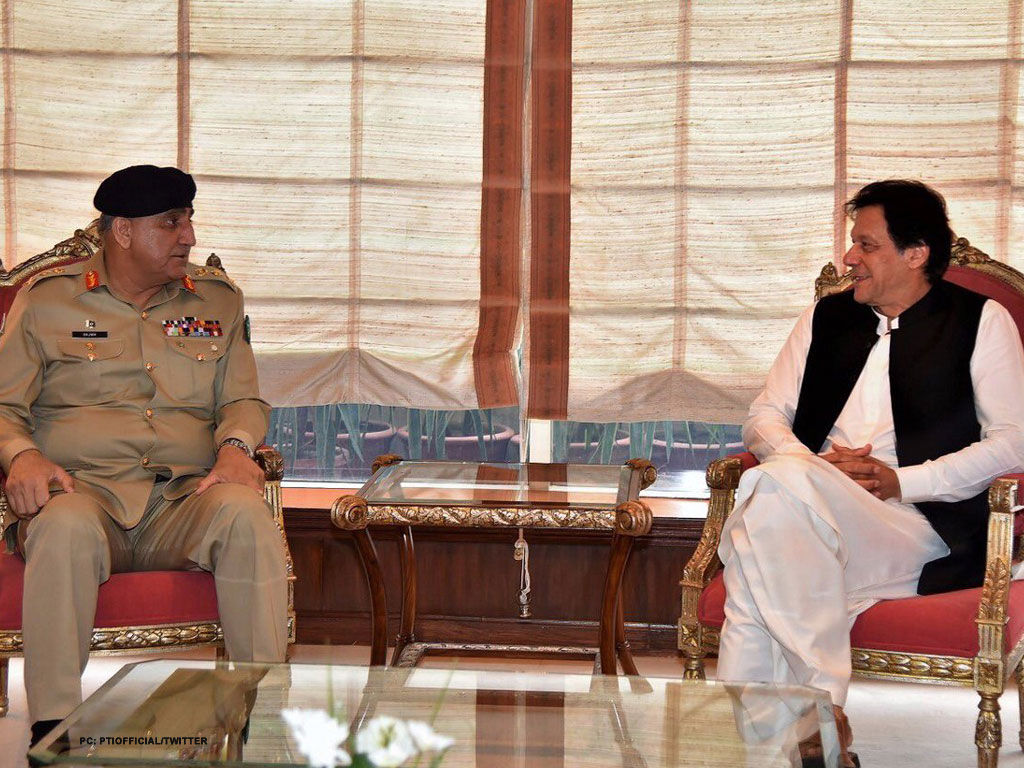
The committee established by Prime Minister Imran Khan comprising leading businessmen of the country (with the committee members meeting with him periodically to discuss their concerns with respect to specific policies and/or their implementation status) was feted by the Chief of Army Staff, General Qamar Javed Bajwa, a day before their scheduled meeting with the Prime Minister on Thursday. Businesspeople have been voicing their concerns and articulating their difficulties in conducting their work at different forums for a while. A committee formed by the government of leading businessmen of the country has been interacting with the prime minister and the economic team on a regular basis and as reported they were asked by the prime minister himself to meet the CoAS. The complaints of the business community include (i) over-correction by the State Bank of Pakistan with respect to some components of the International Monetary Fund (IMF) programme, for example, the Fund had specified that a market-determined exchange rate policy be implemented; however by August, the rupee was undervalued to the tune of 7 percent raising costs of production of those industries reliant on raw material/semi manufactured imports; and raising the discount rate at a level 4.75 percent higher than core inflation has raised the cost of capital to a prohibitive level; (ii) more particularly the front loading of the Fund's conditions have brought business activity to a virtual standstill; for example, attempting to achieve complete documentation of the economy for tax purposes in one year has choked off business activity in several sectors, including the real estate sector with a consequent negative impact on around 30 related industries, while the threat of strike action by traders is looming large on the horizon; one cannot change the 70-year psyche of the business community in one year alone they correctly argue; and (iii) failure of the government to implement announced policies (read fiscal incentives as well as the committed utility price tariff adjustments). The business community has repeatedly pointed out that the government's commitment to set the electricity tariff at 7.5 cents per unit is being flouted by the relevant distribution companies who exclude fuel adjustment charges and/or surcharges from the announced tariff. There is therefore a need for greater clarity of policy which needs to be communicated to all related personnel in relevant departments.
The business community has also been campaigning against the implementation of the axle load safety policy for highways by maintaining that this has raised their transport costs considerably making their products uncompetitive both in the domestic and international market; and has prompted truckers to use roads other than national highways to the detriment/destruction of roads inside towns alongside these motorways. According to Chairman Pakistan Ships Agents Association Tariq Haleem, the axle load regime is likely to hit Pakistan with an additional per annum fuel bill of 1.5 billion dollars and a decline in exports of fruits and vegetables by 88 billion rupees.
That the business community's concerns are genuine is a fact that cannot be denied and must be seen in the context of minus 3.6 percent growth in large-scale manufacturing (LSM) sector in 2018-19 with obvious negative implications for employment opportunities. The main contributors to this negative growth were (i) iron and steel products with 5.3 percent weightage in LSM calculation registered negative growth of 11 percent in comparison to the previous year; (ii) pharmaceuticals with 3.6 percent weightage registered a decline of 8.4 percent; (iii) food, beverages with 12 percent weightage declined by 4.69 percent; (iv) coke and petroleum products with 5.5 percent weightage declined by 6 percent; and (v) textiles with 20 percent weightage registered a decline of negative 0.30 percent. This year, the business community reckons the decline would be higher as the government's economic policies bite more.
The business community hesitant to criticise the policies, perhaps out of concern that it may derail the process of engagement, was reportedly more focused at the meeting on restraining NAB from needling businessmen on one pretext or another and seem to have succeeded in it. At their meeting with the prime minister, subsequent to their interaction with the CoAS, it was decided that the government would form a committee of businessmen that would review any complaint of wrongdoing by any businessman and only after approval of the committee proceedings would be initiated against the individual or a business house. It is important to note that the meeting with the army chief took place at the suggestion of prime minister where the General Bajwa categorically stated that the government is there to stay and complete its tenure. He further stated that the army fully supports the government and asked businessmen to do so also. It is interesting to note that the names of different 'potential' candidates for prime ministership had been bandied about in media prior to army chief-businesspeople meeting. This should now set at rest rumours of any in-house change or a government of 'national unity'.
